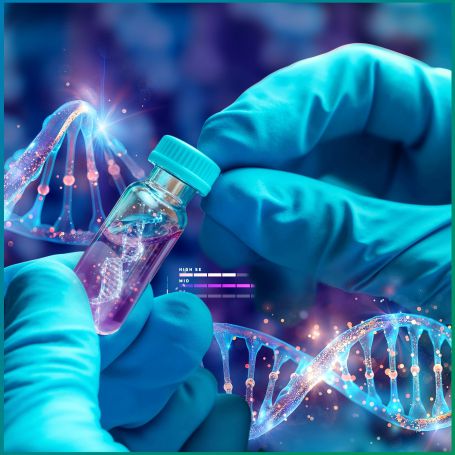
Cytogenetic chromosome testing is a laboratory procedure that analyzes the number and structure of chromosomes within a cell.


Chromosomes are long strands of DNA wrapped around proteins that contain the genetic blueprint for an organism. In humans, there are typically 46 chromosomes arranged in 23 pairs, with one set inherited from each parent.
The primary goal of cytogenetic testing is to detect chromosomal abnormalities, which can include:
A] Numerical Abnormalities: Such as aneuploidy (the presence of an abnormal number of chromosomes, e.g., Down syndrome, which is caused by an extra chromosome 21).
B] Structural Abnormalities: Such as deletions, duplications, inversions, or translocations of chromosome segments, which can lead to genetic disorders or cancers.
1] Sample Collection:
A] Peripheral Blood: The most common source for cytogenetic testing. A blood sample is drawn from the patient.
B] Amniotic Fluid: For prenatal testing, amniocentesis can be performed to collect fluid surrounding the fetus.
C] Chorionic Villus Sampling (CVS): Another prenatal option where placental tissue is sampled.
D] Bone Marrow: For evaluating blood disorders or cancers, bone marrow samples may be collected.
2] Cell Culture: Collected cells are cultured in a laboratory setting to promote cell division. This step is crucial as it allows for an adequate number of cells to be analyzed.
3] Chromosome Preparation: Once sufficient cells are cultured, they are treated with a solution to stop cell division at a specific phase (metaphase), where chromosomes are most visible. The cells are then subjected to hypotonic treatment, causing them to swell and spread the chromosomes apart.
4] Staining: Chromosomes are stained with specific dyes that highlight structural features, making it easier to visualize and analyze them under a microscope. Common staining techniques include Giemsa banding (G-banding), which produces a characteristic banding pattern unique to each chromosome.
5] Microscopic Analysis: A cytogeneticist examines the stained chromosomes under a microscope, counting and analyzing them for abnormalities. This involves checking the number of chromosomes and assessing their structure for any changes.
6] Reporting: The results are compiled into a report that details the findings, including any detected abnormalities and their potential clinical implications.
1] Normal Findings: A typical report shows 46 chromosomes with no structural abnormalities, indicating no detected genetic issues.
2] Numerical Abnormalities: Examples include:
A] Aneuploidy: Such as trisomy 21 (Down syndrome), where there are three copies of chromosome 21.
B] Monosomy: The loss of a chromosome, as seen in Turner syndrome (45, X).
3] Structural Abnormalities:
A] Deletions: Loss of a chromosome segment, which can lead to disorders such as Williams syndrome.
B] Duplications: Extra copies of chromosome segments, potentially leading to conditions like Charcot-Marie-Tooth disease.
C] Translocations: Rearrangements of chromosome segments between non-homologous chromosomes, associated with certain leukemias and cancers.
4] Variants of Uncertain Significance: Sometimes, the test may reveal abnormalities that are not clearly understood in terms of their clinical significance. Further testing and family history evaluation may be required to interpret these findings accurately.
At Diagnopein, we offer comprehensive, accurate, and timely diagnostic services, including the Cytogenetic Chromosome test pune. With our NABL-accredited labs, cutting-edge technology, and skilled technicians, you can be assured of reliable results every time. Get your results quickly, especially when time is crucial in detecting severe infections.
Competitive pricing without compromising on quality. Our team of experienced professionals ensures the test is conducted smoothly with minimal discomfort. We provide not just the Cytogenetic Chromosome test results but insights into your health condition, helping you and your doctor make informed decisions about treatment. For more information call us at +91 9204 108108.
Most patients experience minimal discomfort during sample collection. Local anesthesia may be used for procedures like amniocentesis or bone marrow aspiration to reduce pain.
Generally, no special preparation is needed. However, it's essential to inform your healthcare provider about any medications you are taking or any prior health issues.
<p>Cytogenetic chromosome testing is generally safe, but potential risks may include:<br> A] Bleeding or infection at the sample collection site<br> B] Miscarriage (specifically for invasive prenatal testing)</p>
This test is used to diagnose genetic disorders, assess infertility, investigate developmental delays, and evaluate cancers. It helps identify chromosomal abnormalities that may be responsible for these conditions.